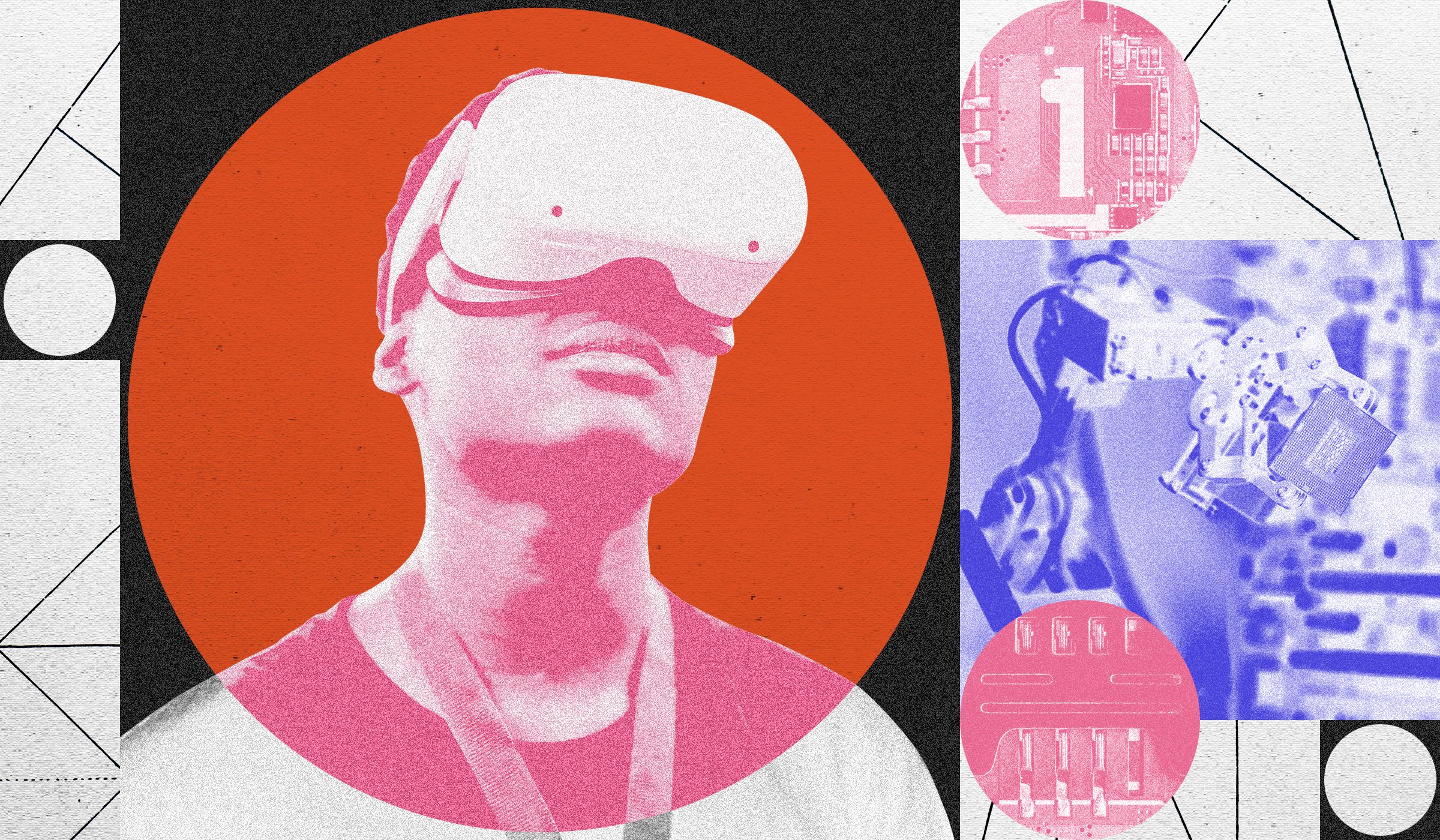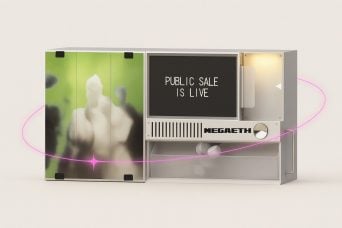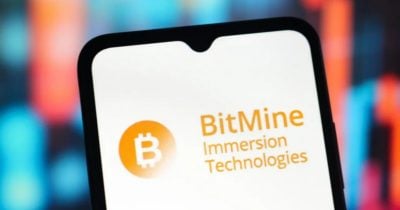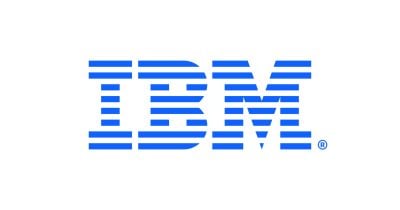Today’s high school students face an uncertain road ahead. AI is changing what skills are valued in the job market, and the Trump administration’s funding cuts have stalled scientific research across disciplines. Most professions seem unlikely to look the same in 10 years, let alone 50. Even students interested in STEM subjects are asking: What can my career look like, and how do I get there?
WIRED talked to five high school seniors from across the country about their interest in STEM—and how they’re making sense of the future.
These comments have been edited for length and clarity.
This Generation Needs to Be at the Forefront of AI Development
I’ve always had an interest in computer science, but my interest in AI started my junior year. The part that hooked me was how applicable it was to our daily lives. I was able to see the rise of ChatGPT and other LLMs, and how people were using them in my academic life. Some people would use it unethically on tests or assignments, but it could also be used to create practice problems. Being able to see how rapidly it’s evolving in front of me was the main reason I became interested. It’s affecting our academic life so much that it’s imperative that we’re at the forefront of how it’s being developed.
My school is a math and science academy, so I got to explore independent research related to LLMs. One of the main things I worked on was how LLMs can sometimes indirectly give out private data. Say you ask it to code something for you that requires an API key, which is sensitive information. Because it’s trained on a vast amount of data, it could have an API key in its data set, and it’ll give you code, possibly including the API key. My most accomplished research project was developing an algorithm to cut out those private pieces of data during its training, to allow it not to spew out these pieces of private data during use.
AI is such a new field that’s evolving, that if we’re able to set roots in it right now, we’d be able to see that outcome as we grow older. Understanding its security is very important to me, especially considering it’s being used almost blindly by everyone. What interests me is being at the forefront and making sure I can have some say in how my data is being used.
I’m applying to undergrad programs right now, and I’m also looking at some untraditional routes, where you go straight into an industry. Right now, in computer science, sometimes a degree is just a baseline, and if you have the skills, it’s not even necessary. So I’m looking into other options. —Laksh Patel, 17, Willowbrook, Illinois
Health Care Access Starts With Communities
My family, on both sides, has a long history of women developing neurodegenerative disease, mostly Alzheimer’s and Parkinson’s. So I spent my whole childhood playing doctor, treating my family matriarchs, tending to them and seeing how their diseases progressed. I became so interested in how these diseases worked, and how I could help patients like the ones in my family and my community who didn’t have access to medical resources because of their income.
I’ve really developed a love for patient care, for being able to help a person in such a debilitating time in their lives. As those female family members began to fade away and pass on, I realized how quickly these diseases spread and why they were so detrimental, especially without proper medicine. When I got into high school, I started to get oriented with research, so that I could gain a base level of understanding to bring to college to try to begin my career as early as possible and help more people.
Right now, I want to be a pediatric neurologist. I really enjoy working with kids, and I’m really interested in the structure of the brain and how that works. I love the process of continuous uncovering and continuous discovery, and with the brain, there’s so much to learn. As your understanding of the brain grows, you grow too, because there’s so much more that you begin to understand about yourself. There’s so much knowledge to not just be captured by yourself, but also to give back. If I can be the translator that helps communities understand what’s going on in their brains, the factors that could make them more prone to developing certain diseases, and we could manage them—I would absolutely love to be that beacon throughout the rest of my life.
I’ve heard that AI is revolutionizing medicine, because it processes information much quicker. But seeing how it’s been infiltrating the minds of our youth, that they’ve become so heavily dependent on it that they use AI for every single task, it’s just so sad to see. As someone that studies the mind, we’re weakening our minds when we’re so heavily reliant on AI. The way I see it used right now, it’s got me very hesitant. —Amelia Andrea Ramirez, 16, New York City
‘AI Takes Away the Element of Curiosity’
I was always a “why” kind of child. When my parents told me, “Don’t do something,” I always thought, “Why?” I feel like science explains a lot of that. Most of the time, people who know science make good decisions, because they’re more informed about how the world works. When you take the time to figure out why certain things work the way that they do, you’re more inclined to think critically about things before you just make decisions.
Since I was a little kid, I’ve wanted to work in a hospital. I definitely want to be a doctor of something sciencey. Biology has always been my favorite. The most interesting thing about it is that it builds upon itself: People are working to figure things out, and you don’t even know about it until they say, “We’ve been trying to figure out the function of this and why it’s important to life for decades.” With biology, you’ll never run out of things to learn.
But I think that AI could make people, including myself, less compatible for a job, because it takes away the element of curiosity. You’re not digging for answers anymore, so you just go for immediate gratification. That’s not fair to my generation and the generations after me, who aren’t going to know what it’s like to learn things without the use of the internet. For example, being a doctor is all about conversations with your patients, but with AI, you could just use the computer to figure out what you need to do. Then you’re not actually thinking, you’re just playing messenger. —Jiondae Dewald, 17, Lambertville, New Jersey
Think Like an Engineer
I like engineering, because there isn’t much to memorize. It’s purely based on concept. Based on variables X and Y, you can find variable Z, which I find super cool. For example, if a soccer player kicks a ball with this amount of force and the ball is in the air for five seconds, how far will the ball go? You can calculate it. That’s crazy, you know? There’s a correct answer. In English, there isn’t really a correct answer. But in physics, and as an engineer, there’s a correct answer.
Right now, I’m looking toward industrial engineering. I’m very interested in how whole systems interact with one another. In a factory, for example, instead of just looking at the machine that makes the capsules for vitamins, I’m interested in seeing how people are doing the spreadsheets and importing the materials in a foreign country. How the whole system works is very interesting to me, because it’s something larger than yourself.
Industrial engineering is about optimizing things. Even with AI, there’s still going to be a need to make things more efficient. What I tell myself is that at the end of the day, a system will still need a human behind it, you know? You’ll always need a human to verify things and create that bond between humans. That’s what keeps me a bit calmer, and I guess helps me just be more human. Maybe connecting with people and being with friends would be more beneficial than studying for the math test. —Simon Tchira, 17, Miami, Florida
AI Won’t Take Over
Back in fifth grade, I had my first science fair project. I asked my dad for help with it. He’s a bioinformatics researcher. Instead of counting all the bacteria colonies inside the petri dishes manually, he taught me how to use computer science vision tools and apply color thresholding to help count the number of bacteria colonies for me. That was really fun. Doing science fair was one of my first experiences where I felt like I was something more than just an elementary schooler, and was actually doing something that was impactful.
Sophomore year of high school, I got back into science fair, specifically through machine learning, because that’s what my dad was doing at the time. It’s very cool: The concept that, using a bunch of simple math, we can chain it together to create models that can predict pretty much anything in our world that is quantifiable. I definitely want to get into that field when I grow up, and more specifically, I want to do stuff with medicine and medical imaging.
The other day, I told one of my friends, “I want to be a machine-learning engineer.” And he outright told me, “Bro, that’s not going to be a job in 10 years.” He’s very optimistic about AI and the capabilities it will have, but I’m more skeptical of it. From my viewpoint, being involved in this for several years now, there are certain roadblocks in AI that will prevent it from developing much further. AI is certainly overhyped, maybe because it was so underhyped before. A lot of the hype we’re seeing around AI has to do with startups in Silicon Valley, backed by Y Combinator or a16z, and 90 percent of them, in my opinion, are just wrappers for AIs that already exist.
I’ve seen a lot of videos online of people being, like, “AI is going to take over by 2027,” but I’m not so sure about that. I would definitely say that the frontier of large language models is slowing down. Maybe in 50 years, we’ll see models that truly can take over jobs. We don’t really know. —Jayden Jeong, 17, Lexington, Kentucky




